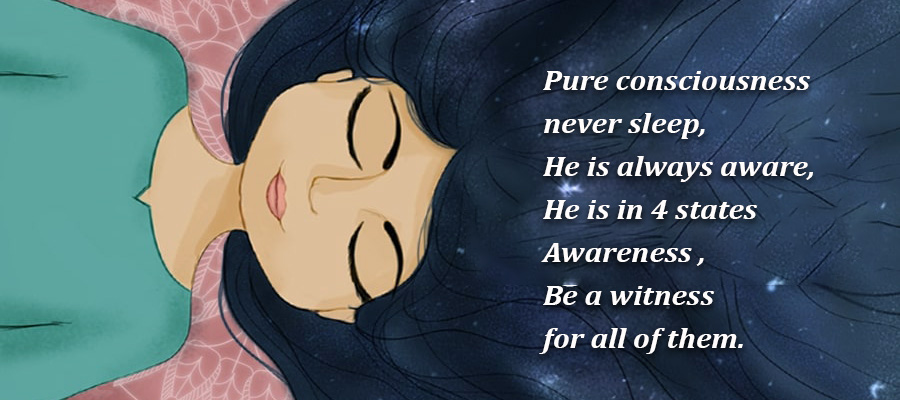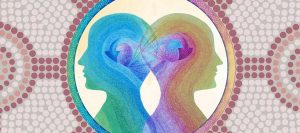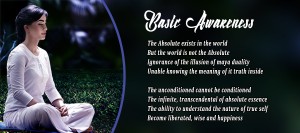- 1Mind and Prana
- 1.1Healing
- 1.2Sleep and the Home
- 2The Great Cosmic Dream
- 3Every Day as the Creation of the Entire Universe
- 4THE POWER OF CONSCIOUSNESS
- 5Three Worlds and Five Bodies
- 6SLEEP AS A SPIRITUAL DISCIPLINE
- 7Ayurvedic View of Dreams
- 8SLEEP PROBLEMS
- 8.1Why do we sleep?
- 8.2How does sleep affect memory?
- 8.3What has changed in sleep research?
- 8.4What do you measure to test brain health?
- 9NIDRA YOGA — MINDFUL SLEEP
- 10YOGA AT EACH LEVEL OF CONSCIOUSNESS
- 10.1Yoga in the Waking State
- 10.2Yoga in Deep Sleep
- 10.3Yoga in the Fourth State
- 11Natural Patterns of Sleep
- 12Dreams and the Astral World
- 13Science and the Mind
Dreams and the Astral World
In the inner worlds, inner universe, there is a life not unlike this one that we experience as a jiva, but far more complete, intricate, logical and much more advanced. Within this world, the Antarloka, there are great schools where students gather to learn of a more productive future that they can participate in creating when they incarnate. Here they mix and mingle with other souls whose physical bodies are sleeping and whom they will work and cooperate with during their next cycle of birth. It is a well-planned-out universe, both the outer universe and the inner universe.
The value of sleep for the person on the path is to gain the ability to bypass the lower dream state and soar deeper within to these inner-plane schools. This is done by the repetition of mantras, japa yoga, just before sleep, after relaxing the body through hatha yoga and diaphragmatic breathing.
When japa is well performed and the sincere desire is maintained to transcend the forces of the physical body and enter into the astral schools of learning, the aspirant would have dreamless nights. A deep sleep would prevail. There may be a few seconds of dreaming just before awakening, to which one should not pay any attention, as the astral body quickly reenters the physical. But a deep, dreamless sleep is in itself an indicator that the purusha is totally detached from the physical forces and totally intact and functioning in the Devaloka.
Should dreams be remembered? It is almost traditional in many cultures to try to remember one’s dreams, and dreamologists will even interpret them for you. This all borders close to the realm of superstition and is far less desirable for spiritual growth than other more pragmatic types of practices. A beginner on the path, or even one in the intermediate phase, should endeavor to forget dreams and strengthen the fibers of the mind and psyche through daily sadhana. There is actually a time, on the yoga marga, after the charya and kriya margas have been well mastered and passed through, that the remembrance of one’s dreams is beneficial and fruitful, but this would only be between the guru and the shishya.
It may be beneficial for those under the guidance of a satguru to write them down each morning upon arising and put them at his holy feet at the end of each month. This would be strictly a guru-shishya training relationship and for a specified period of time, not more than four months. It might be scary, even disheartening, for you to do this for yourself. And satgurus would recommend that you forget your dreams upon awakening, for if remembered they may bring that reality into the awakened reality and produce experiences you would not want to experience.
We want to forget bad dreams as quickly as possible, lest by remembering them through the conscious mind we impress them in the immediate subconscious and make them manifest in daily life. To think about a bad dream is to create. To forget it is to avoid creating. Therefore, if you have the slightest worry about dreams and are not directly under a guru’s guidance on a daily basis, it is best to let them slide by and consider them unimportant and not a part of you, as you would consider a television program to be.





